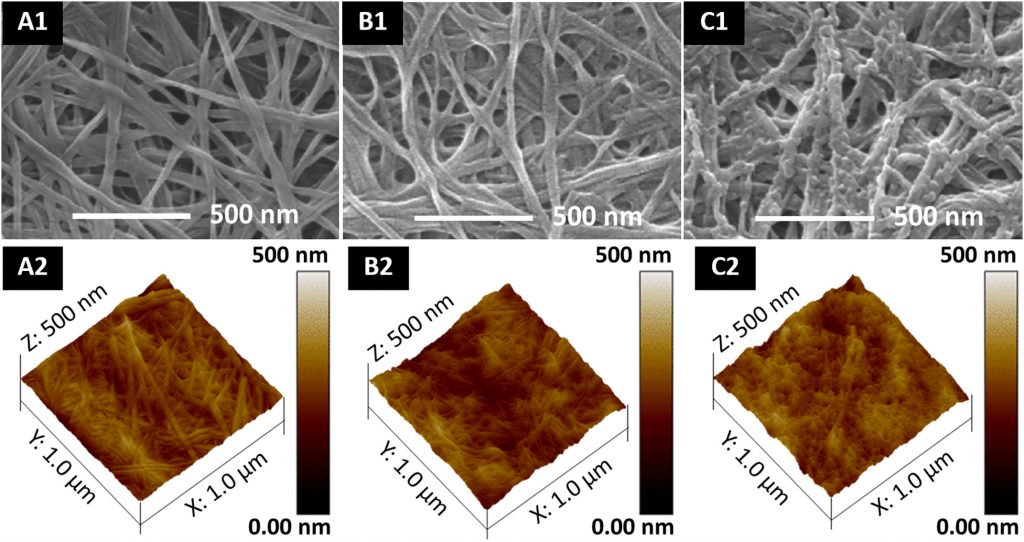Bacterial cellulose membrane (BCM) has been recently recognized as a new generation of carbohydrate-based nanomaterial that possesses a great potential in tissue engineering applications. This research aims to develop an active non-resorbable guided tissue regeneration (GTR) membrane from BCM by conjugating with plant-derived recombinant human osteopontin (p-rhOPN), an economically produced and RGD-containing biomolecule. The BCM was initially grafted with poly(acrylic acid) (PAA) brushes to form poly(acrylic acid)-grafted BCM. Multiple carboxyl groups introduced to the BCM by PAA can serve as active anchoring points for p-rhOPN conjugation and yielded p-rhOPN-BCM. All chemically modified BCMs were characterized by attenuated total reflectance Fourier transform infrared spectroscopy and X-ray photoelectron spectroscopy, while their surface morphology was evaluated by field emission-scanning electron microscopy and atomic force microscopy analyses. The amount of p-rhOPN adhered on the membrane was quantified by enzyme-linked immunosorbent assay. The immunocytochemistry, two-stage quantitative real-time reverse transcriptase polymerase chain reaction and in vitro mineralization analyses strongly suggested that p-rhOPN-BCM could elicit biological functions leading to the enhancement of osteogenic differentiation of human periodontal ligament stem cells as effective as BCM conjugated with commercially available rhOPN from mammalian cells (rhOPN-BCM), suggesting its potential to be used as GTR membrane to promote bone tissue regeneration.
- NichapaKlinthoopthamrong
- DaneeyaChaikiawkeaw
- WaranyooPhoolcharoen
- KaewtaRattanapisit
- PornjiraKaewpungsup
- PrasitPavasant
- Voravee P.Hoven

